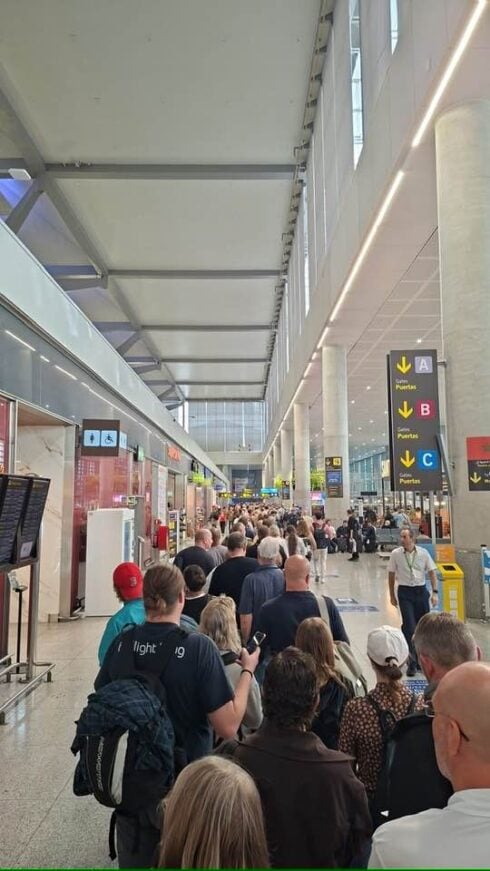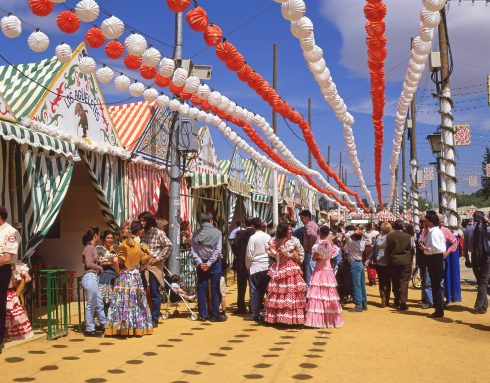SPAIN’S charm extends far beyond its beaches and tapas.
With its rich culture and vibrant lifestyle, it’s no wonder many foreigners dream of owning a piece of this beautiful country.
If you’re one of them, it can be difficult to know where to start when navigating the mortgage process in Spain.
But there is really nothing to be afraid of if you follow the right steps – and this guide will help you understand the process. Remember though, professional advice from an appropriate Spanish speaking lawyer should be sought.
Mortgages Made Easy: Online Application and Reliable Partners
Gone are the days of lengthy in-person applications. Thankfully, professional real estate company Spain Homes ® offers a secure and efficient way to apply for a Spanish mortgage. They ensure you receive high-quality service, with the entire process potentially taking just seven minutes! They’ve also teamed up with Habeno, a trusted partner specialising in innovative mortgage solutions, to provide you with the best possible experience without leaving your house.
Qualifying for a Spanish Mortgage: Documents and Eligibility
For some reason, many people believe that a non-resident can not get a mortgage in Spain. This is not true – as many tens of thousands of second-home owners can testify to.
Foreigners can absolutely get mortgages in Spain but they will need to get an NIE number (a simple process).
While non-residents typically face a lower loan-to-value ratio (60-70% compared to 80% for residents), with strong finances and a clean credit history, securing a mortgage is achievable.
To streamline the process, gather the necessary documents beforehand. These include:
- Proof of identity (passport or official ID card)
- NIE Number
- Marriage certificate (if applicable)
- Proof of income or employment
- Latest income tax returns
- The property purchase agreement with the seller
- Proof of property tax payments up to date
- Information on existing loans
- Proof of current assets and debts
- Copy of property deeds in Spain and other countries
- Credit rating from the applicant’s home country (for non-residents)
It is essential to ensure that all documents are in Spanish or English.

Understanding Mortgage Rates and Types
Interest rates in Spain are usually tied to the Euribor rate (set by the European Central Bank).
The lender will then add a fixed margin on top. Non-resident rates typically range from 2-3%, but can fluctuate depending on the market.
Spain offers two main mortgage types: fixed-rate and variable-rate. Fixed rates provide stability with consistent monthly payments, while variable rates can fluctuate based on the Euribor. Which is right for you requires some thought – fixed rates provide long term budgetary stability while variable rates can bring you savings should the Euribor come down, with the risk of increase payments should Euribor go up.
Choosing the Right Mortgage for Your Needs
It is important to consider just which type of loan you need. Spain caters to diverse needs with various mortgage options.
Residents can access higher loan amounts, while those purchasing a holiday home have access to specific mortgages designed for them. There are even options for off-plan properties, land purchases with construction plans, and multi-property investments.
For high-value properties exceeding €1 million, private banking solutions might be available. Existing property owners can leverage equity-release mortgages to purchase a new property without selling their current one.

Remember the Hidden Costs: Budgeting Beyond the Mortgage
The purchase price isn’t the only cost to consider. Factor in additional expenses like property taxes, legal and notary fees, registration, and mortgage arrangement fees. These can add up to 10-12% of the property value. Having a financial buffer of at least 40% of the property value will ensure a smoother buying process.
Securing Your Investment: Property Valuation and Legal Support
Before finalising your mortgage, the lender will order a professional valuation of the property. This ensures the asking price reflects the property’s true market value, protecting your investment.
Given the complexities involved, seeking legal advice from a local Spanish-speaking lawyer is highly recommended. They can review contracts, safeguard your interests, and translate legalese into clear terms.
By understanding the mortgage process, the different options available, and the additional costs involved, you’ll be well-equipped to navigate the exciting world of Spanish property ownership. With the right preparation and guidance, owning a piece of Spain can become a reality.
![]()
Visit their offices in Malaga (Benalmadena) and Alicante (Orihuela) to find out more.
MÁLAGA, BENALMÁDENA
Address: C/El Montículo 8, 29631, Benalmádena, Málaga
Telephone: +34 951 23 59 59
ALICANTE, ORIHUELA COSTA
Address: Carretera de Villamartín 12, Urbanización La Zenia II, Casa 22, 03189 Orihuela Costa, Alicante
Telephone: +34 951 23 59 59
Click here to read more Andalucia News from The Olive Press.








